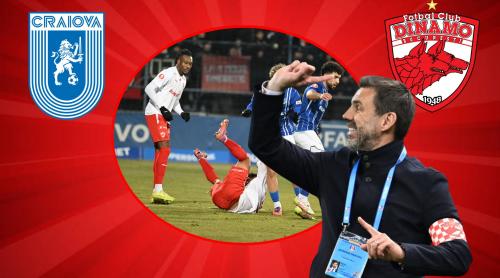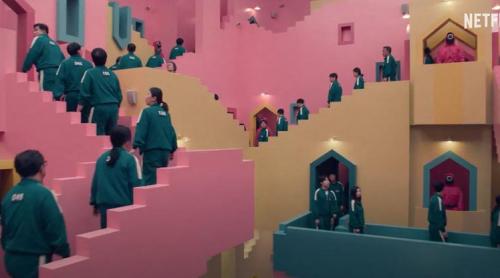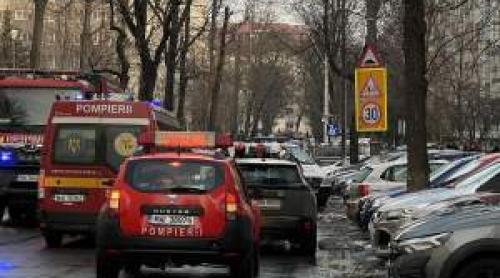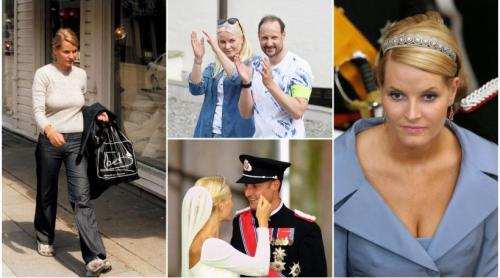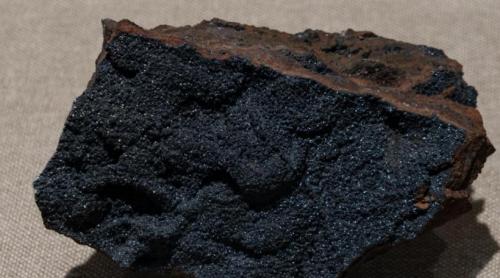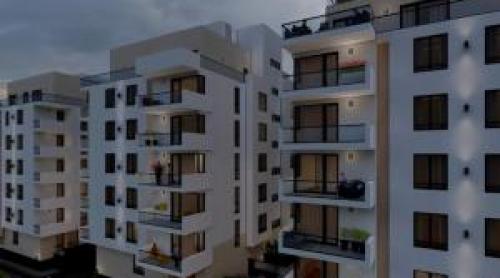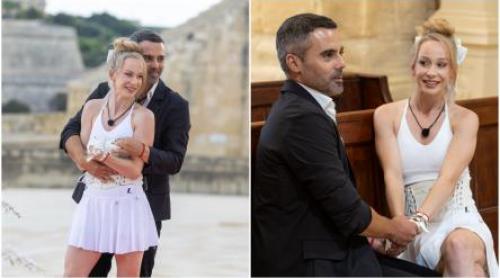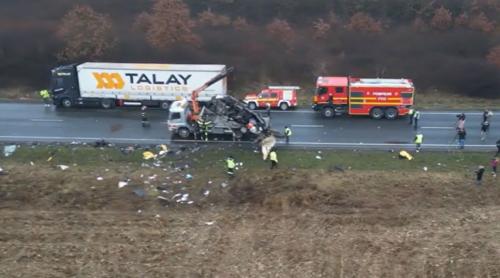
Read the last episode of the series written by Marie-Jeanne sIon, journalist with Prima TV and former hostage in Iraq, trans. notet
"Every morning we were following a ritual for washing and using the toilet. During the first part of our stay in the basement it was a pretty complicated procedure. A guard was coming in with a water jug, soap, a towel and a sink. It was clear he was not happy to cater to us. One night we heard powerful knocking from upstairs. What were they building, we asked ourselves. Number 6 spresumably French journalist Florence Aubenas, trans. notet told us that more changes had been made to the basement and that our captors were very proud of them. She/he said that maybe the work was for building another space in the basement to keep more hostages there. I could not bring myself to believe that. Next time we were taken out of the basement to go to toilet, I understood what all the noise was about: they brought inside the toilet a pipe with running water; hence, we were going to wash ourselves in the morning, without the help of our guards.They also provided us with tooth brushes! Each of us had his or her given "number" written on the packing of the toothbrush. Still, we were not allowed to brush our teeth daily, but every two or three days. We could never get what was the logic behind that, but we had to comply. On May 4th we "defeated" Said - the guard which had the most authority among his peers. He was the one deciding what we were to eat and how much, or if we were allowed to smoke. At one point he decided that smoking was not good for my health, hence he handed me half cigarettes, saying «Islam! Islam!» and telling me that I had to give up this bad habit.
Said was not very generous with our food portions either.
We got a lot of rice, with a spoonful of beans on top of it, or sauce made with onion; bread, cucumbers, an apple, from time to time.
Both I and No. 6 kept refusing the rice, because we could not digest it. So they started bringing us tomatoes and cucumbers, with bread. We sometimes got a small bottle of milk, "Halib Popey" brand, with banana or strawberry flavoring. It was very tasty, but I would not like to get its taste now. Said was very stingy. We assumed that there were some portions designed for us, but that we did not get them all. The Arabs eat well, and it was impossible to believe that they assumed that a man the size of Sorin sMiscoci, cameraman for Prima TV, trans. notet could have had enough to eat from three slices of bread, a bit of cheese, a cucumber and a cake a day! One day we all felt so hungry that we took turns in complaining «hungry, very hungry⦠please, again sandwich⦠very hungry!», we kept saying.
I think that in the end they felt very bad and got the message: we needed more food.
So May 4th will stay in our memory as the day we defeated Said. From then on we could choose what we wanted to eat and have it in plenty. The man lying on the mattress next to me, called Number 9, had serious health issues. He did not move, and from time to time I heard him moaning. He never spoke; he only uttered some sounds like «E ⦠E ... E».Later on I discovered that he was speaking very good English. He whispered to me to not trust the guards, because they were mean and could beat you, even if they did not look so aggressive. He was the second person to tell me this. No. 9 was so weak that I was afraid he will die while lying next to me.
No. 9 kept on swallowing valium and went on sleeping.
But one night he had a panic attack. « Open the door, let me out, just let me outâ¦Â» I heard him whispering. Since the fire in the basement we were allowed to knock in the ceiling to call the guards in case of major crisis. But they told us to not bother them unless it was indeed a serious matter. sMohammadt Mounaf sIraqi guide of Romanian journalists, also kept hostage, trans. notet overheard the guards talking about No. 9. They thought he was faking his illness. «Wouldnât it be better to take him to the other location and get rid of him?», they said.
We had no idea what that «other location» was.
But No. 5 told us that such groups usually manage several locations for detention purposes but also one called "a special location," which in fact is the place of no return, since people are tortured and killed there.
Therefore, what Mounaf overhead was not a good thing. I put my mouth to No. 9âs ear and asked in English: «Are you sick? Whatâs the matter with you? Where is it hurting you?»
«I have no idea what it is; it must be my head. Tell the guy sMounaf, usuallyt knocking in the ceiling to call the guards. I want to sleep outside, in the openâ¦Â»
«No, I do not want water. I want him to knock in the ceiling», he said.
We did knock in the ceiling, but the guards did not wake up. We had to calm down somehow No. 9.
«Itâs no use, they do not want to come down. I think you should better try to relax and stand the situation till the morning comes. In any case they suspect you are faking it and plan to move you to another location», I told him.
No. 9 really got scared.
«All right then, but if you feel I am loosing my consciousness I will tap on your mattress and then please give me a push», he said.
He was all right in the end. But not quite; he also had health problems with his eyes. I had no idea what was wrong with him. No. 6 told me that the guards put ointment on his eyes. He had them covered at all times. We suspected he had an infection from the rust which kept dropping from the ceiling on top of us. For the month we had spent there, in the basement, no one was released. Some people were taken out of there in January and February, but none since the beginning of April, when we arrived there.
We were sure our captors were a small group, with not much experience in organizing the release of hostages. Everybody felt that way and thought at one point or another that we stood no chance of being freed. So, instead of rotting down there we started thinking of helping ourselves to get out.
We planned our escape at first for the three of us sthe Romanian journalists, trans. notet.
But then we tried to get others on the plan too.
The locks were pretty big, so we stood a chance to knock them down. Then we were supposed to climb upstairs and immobilize the person we would find there. Next we were to search for the weapons and find the car.
We believed they had one, since they kept two tanks for car oil in the basement, which the boys used in emergency situations, when the guards did not get them to toilet in time.
But where we then to head to? Where were we? Which way was the highway? In what kind of locality was our prison located? What if it was a small Sunni village, where everybody is a next-of-kin? Would we all fit in a car, had we found one?
These were too many question marks.
We understood we were unable to design a coherent plan for escape since we knew nothing of what was going on outside. But to attempt an escape may be in desperate situations the one in a million chance one would not have otherwise.
So, we set a time till one of the people in the basement had to be freed. If that was not going to happen, we were to act.
But then we realized that in order to enter the house and search for the weapons we had to immobilize the guards or even kill them. Could any of us kill a human being? This was the toughest question.
Sometimes we felt like jumping at their throats, knocking them down and suffocating them with the pillows. We imagined we could. But when we seriously considered what will mean to kill them we realized that it would have been very difficult, if not impossible for us to accomplish this. So, we were left with out plans and with our dilemma. Sorin suggested for the self-imposed time-limit to be the end of April. Fortunately, we did not get there. One day the door opened and the guards whispered into our ears: «OK, go Romania».
And so we did. We were terribly afraid on our way to freedom, that something will go wrong, that they will not actually release us but hand us over to another group. The risks were great and when we arrived back home we found out that the whole operation was extremely dangerous.
We first arrived at the sRomaniant embassy sin Iraqt, and then a military plane took us back to Bucharest.
Then we were quarantined and we found out that our health was pretty good: only some vitamin loss, some sand in our kidneys. I had an infection of the skin which is not yet cured. We all had problems sleeping. We could not go to sleep though we were extremely tired. I was afraid to go to sleep and discover that our liberation was only a dream. But all is behind us now.
When we arrived back home another nightmare started sprobably hinting at the media probing into the journalistsâ previous relationships with the people standing now accused of kidnapping them, trans. notet
But that will go too.
We are, after all, survivors! We thank from the bottom of our hearts to the people who prayed for us when our only support was prayer. Your love helped us a lot and we understood that there are many Romanians with a great heart. Again, thank you!"
Citește pe Antena3.ro


